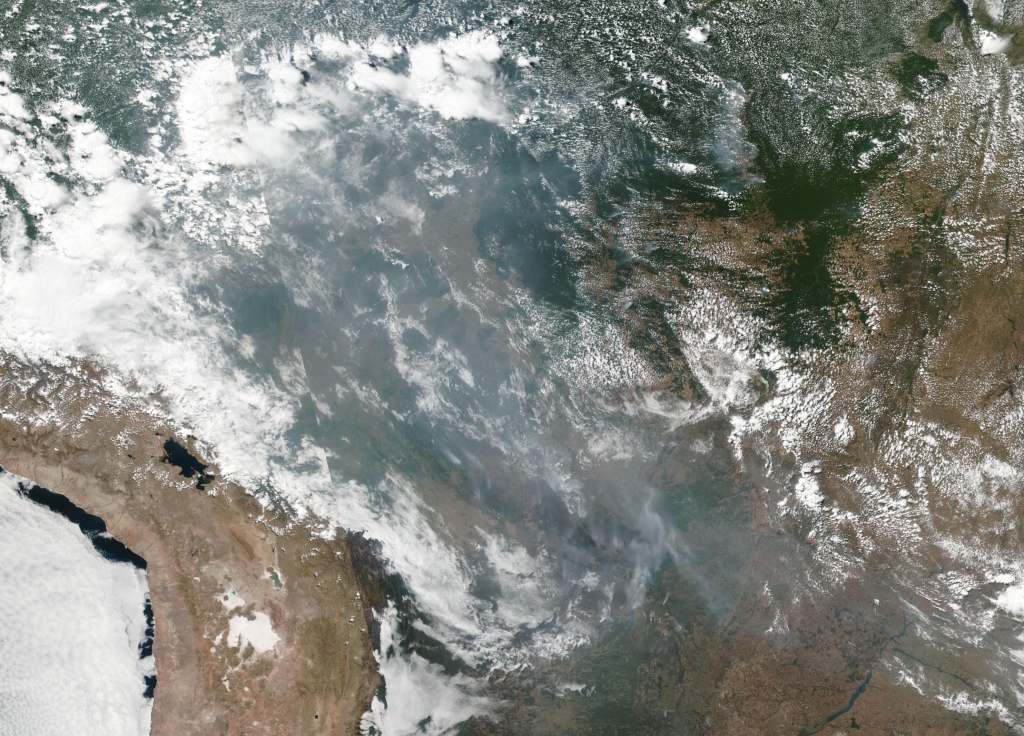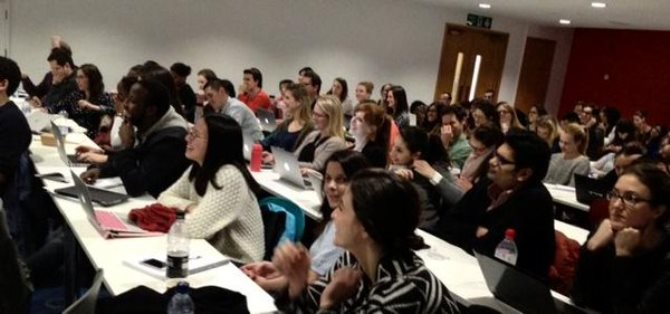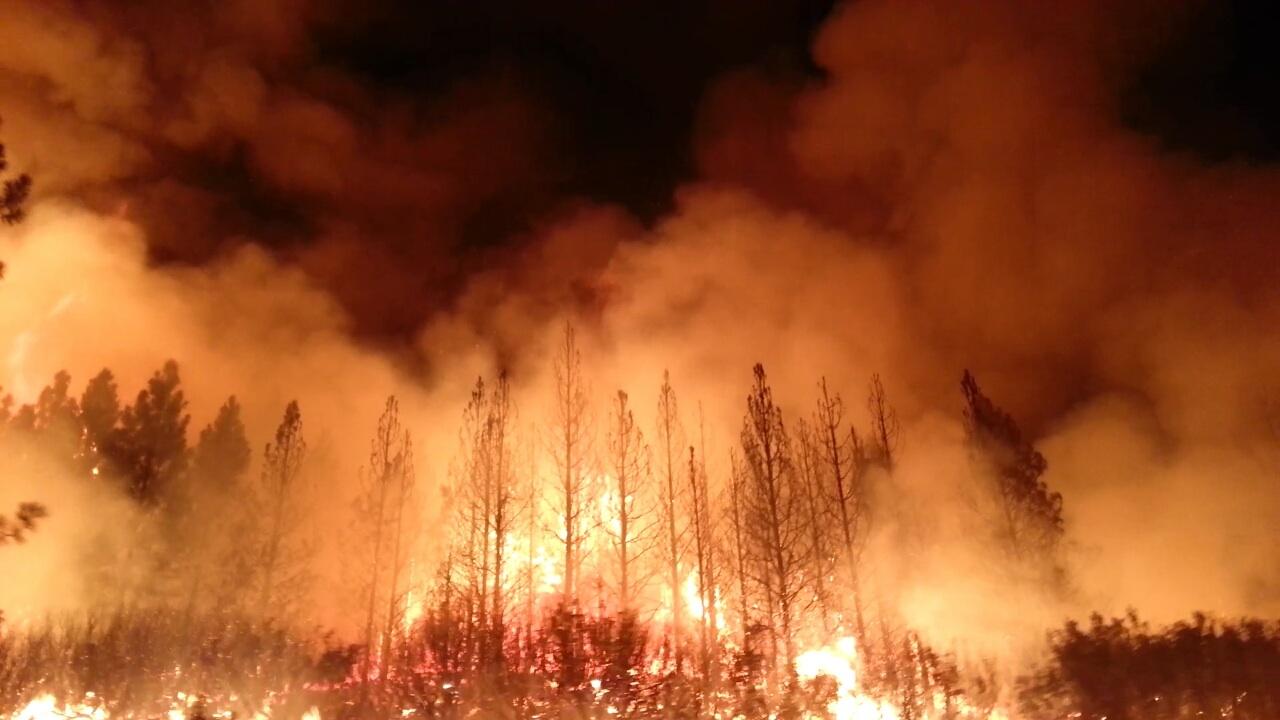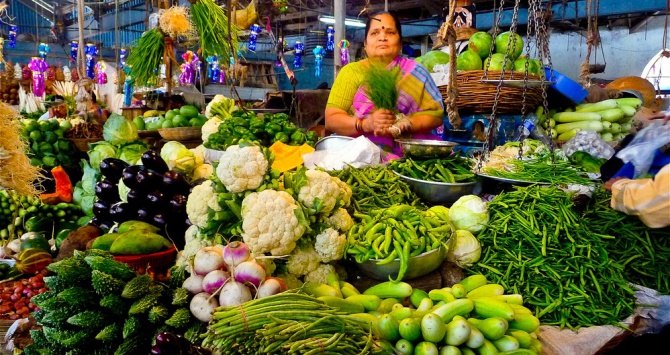Professor Kathy Hochstetler looks back to the Amazon fires in 1989 and questions what has been done (and undone) since then to protect world’s largest rainforest.
At the end of the 1980s, fires raging in the Brazilian Amazon went viral in photos that were disseminated around the world. Brazil’s president at the time, José Sarney, retorted that the Amazon was in fact Brazilian, pointedly calling his new environmental protection program “Our Nature” (Nossa Natureza). The parallels to the Amazonian fires of 2019 are striking. Even so, at least three large changes over the intervening decades do make this time different, offering new tools to address the fires and some of their human causes—should President Jair Bolsonaro and his government choose to use them.
The first of the three is a revolution in the amount of data and research available about the Amazon and the environmental systems into which it fits. Sarney’s modest “Our Nature” program began to actually measure deforestation in the Amazon for the first time, setting a baseline of forest cover in 1988 and measuring annually from there. Satellites allowed finer scale and more regular measurements in the 2000s, which the Brazilian government chose to make available on public websites on a monthly basis. Brazilian and international scientists continued documenting species and understanding habitats in this biologically rich location. The U.S. and Brazilian space agencies—NASA and the National Institute for Space Research (INPE), respectively—started counting fires in the Amazon together in 2002.

Study of the Amazon itself was matched with a much better understanding of the large hydrological and climate systems into which it fits. The Intergovernmental Panel on Climate Change (IPCC) synthesized peer-reviewed scientific literature on changes in the climate system for the first time in 1990, concluding only that it was possible that human action might be worsening a natural warming effect. By 2014, the IPCC’s fifth assessment report left no doubt about the negative human impact. Scientists had also found considerable agreement along the way about the crucial role that forests like the Amazon play in sequestering carbon as long as fires and other forms of deforestation don’t take them down.
Bolsonaro has ignored and attacked such scientific knowledge in his eight months in office. He is a skeptic, if not a denier, of climate science. When INPE released its normal monthly data in July that showed a sharp rise in deforestation, he questioned the credibility of the data and insisted that he needed to see and approve future results before dissemination. He ultimately fired respected INPE Director Ricardo Galvão and is searching for a new private sector source for data. Funding for the national science agencies had already been cut almost 50 percent since 2014, but the personnel and expertise are still available to revive this critical tool should he change his mind.
The second new tool is a suite of policies, mostly from Marina Silva’s stint as environment minister in the first decade of the 2000s but building on earlier policies. To list just a few, a Plan to Prevent and Control Amazon Deforestation coordinated increased monitoring and fines for deforestation, based in part on the new real-time data. New protected areas and small payments for ecosystem services added other incentives. Municipalities with high levels of continuing deforestation faced restricted access to credit. João Paulo Capobianco, a key advisor to Silva, told me in December 2018 that he had concluded that this package of policies worked because it successfully showed potential deforesters that the state was present in the region, for virtually the first time. And the policies did work. Annual deforestation rates dropped almost 80 percent between 2005 and 2009 before leveling off, giving Brazil significant bragging points in international climate and biodiversity negotiations. Success of this kind was unimaginable through the 1990s and up to 2005, when it seemed like there were no effective controls on deforestation to wield.
Since 2014, deforestation rates have crept up again before leaping this year. In many ways, the trend proves Capobianco’s point: The state is now increasingly absent as a monitor and enforcer of policies to control deforestation. Budgets have dropped since Brazil’s economic slowdown began in 2014, showing how heavily the model depended on coercive control of local actors. Under Bolsonaro, further budget cuts are joined for the first time with deliberate choices to weaken institutions and undermine the national government’s ability to prevent deforestation. Climate bureaus are gone altogether from the Environment Ministry and the Foreign Ministry. Bolsonaro and his environment minister, Ricardo Salles, are openly hostile toward the nongovernmental organizations that have been central to environmental protection in Brazil since the 1950s, cutting their funds, influence, and authority at every opportunity. Once again, this set of tools could be recuperated, but it would require a significant reversal in direction for the Bolsonaro administration and substantial increases in funding.
The final new tool turns attention to a very different place—our supermarket shelves and global trading relationships. In 2019, paper products routinely come with the stamp of the Forest Stewardship Council, an international nonprofit that set standards for labeling products as eco-friendly, and one can spend a great deal of time deciding just which fair-trade, environmentally friendly coffee certification scheme to reward with one’s business. Those kinds of programs were just starting to develop in 1989. In the decades since, they’ve become routine, and they have come to the Amazon as well.
Much of the Brazilian soy processing industry has signed a voluntary Soy Moratorium agreement that required them to promise they would not purchase soybeans grown on land in the Amazon that was deforested after 2006. The four largest meat-packing companies made a similar commitment in 2009, and the Banco do Brasil also signed on in 2010. These commitments are especially important for European consumers and their retail representatives. They also require significant oversight and enforcement but now from the private sector. The agreements are not perfectly effective, and there are questions about how effectively cattle are tracked in particular. But they have given significant segments of Brazilian agribusiness a serious incentive to cooperate with efforts to reduce deforestation. Many of them have spoken out in recent days to denounce the burning fires and warn that there will be no markets at the end of them for new production.
Perhaps the most interesting fact about this final development is that these actors have Bolsonaro’s ear. They have successfully weighed in on specific decisions, such as Bolsonaro’s initial proposal to put the whole Environment Ministry into the Agriculture Ministry. And they are one of the most consistent voices warning that Brazil’s economic ambitions depend on its avoiding a growing international reputation as an environmental pariah. They can gain an audience with the president where more traditional environmental actors cannot, and in their absence, the surge in deforestation and fires in 2019 would be much worse.
Fires burned in the Brazilian Amazon in 1989 and 2019 and all of the years in between. Addressing the deforestation and other environmental problems that result is not about getting out the firefighting equipment and sending it quickly to Brazil. Fires in the Brazilian forests are almost all deliberately set, and dissuading them requires a political and economic effort over years. Brazilians have developed many tools to do that over these three decades, working on their own and with various international allies. Public opinion surveys show that very large majorities of Brazilians—80 or 90 percent of them—favor strong environmental protections for the Amazon and the global climate. Taking control of the Amazon away from Brazilians is not the solution; rather, the task is motivating the government to use the tools it already has.
Kathy Hochstetler is Professor of International Development and teaches Global Environmental Governance. She is currently completing a research project on the role of the BASIC countries (Brazil, China, India, South Africa) in climate negotiations and is writing a book on the adoption of wind and solar power in Brazil and South Africa. In addition, she is researching south-south development finance, with particular focus on Brazil’s BNDES.
This article was originally written for the foreignpolicy.com.
The views expressed in this post are those of the author and in no way reflect those of the International Development LSE blog or the London School of Economics and Political Science.





